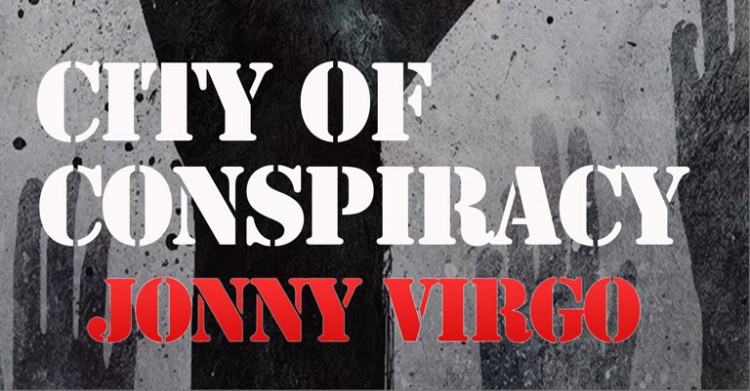
Getting my toolkit together for some early stage concept development on a new transmedia project, I recently re-visited the website of Conducttr, a transmedia development platform. There I was drawn to this strap line for a project created by Hip Hop artist and author Jonny Virgo:
“Dan Brown meets Harry Potter . . . with more black people”.
Virgo’s reference to the cultural landscape of a particular literary sub-genre also resonated with me as a self-confessed “afro-geek”[1] who finds the sphere of digital creativity somewhat lacking in cultural diversity. This is an industry centred in an urban milieu that simply doesn’t reflect the make up of its populace. In the following podcast Jonny Virgo, author of the “interactive novel” City of Conspiracy and creator of the wider transmedia project of the same title, makes reference to this phenomenon in describing his experience of attending various transmedia and ARG (Alternate Reality Game) events in London. However, he goes on to describe how through making work out of “the things that I like, the [cultural] elements that I bring to the table […] rather then targeting any specific group” he has been able to create a transmedia project that reaches beyond what he calls a “white urban professional demographic” that hitherto have been the medium’s exclusive participants. What’s of equal interest is that, impelled by his position outside of the world of opaque funding structures and venture capital, Jonny Virgo has managed to achieve a sustainable self-financing and potentially profitable model for transmedia by importing much from the entrepreneurial culture of the ‘urban’ music scene. His honest and sometimes self-effacing telling of his journey with City of Conspiracy makes for interesting listening.
For me documenting the role of people of colour in the emergence and development interactive multimedia is vital. The lack of visibility of Black figures instills in a potential new generation of Black creative talent the idea that, albeit as early adopters, they can or will only ever consume new technology as passive respondents to corporate brand marketing. That young people of colour may acquire iPhones in large numbers, but making an app is somehow beyond them. This despite important historical milestones such as the invention of email by VA Shiva Ayyadurai at the age of 14 and John Henry Thompson’s invention of the Lingo scripting language (for Macromedia/Adobe Director & Shockwave), which made possible most of the interactive digital art/media of the 90s. The digital sound sampler was created to facilitate near realistic reproduction of a range of acoustic instruments on a musical keyboard, but the appropriation of the sampler by Black Hip Hop pioneers such as Mark James (aka 45 King) redefined the sampler’s primary role in music production. Then there’s the work of Digital Diaspora including the Digital Slam in 1995 (directed and co-produced by yours truly) – the first ever event to utilise telematic technologies to facilitate real time trans-continental collaboration in live performances. Digital Diaspora and its successor Displaced Data took a lead in discourse around virtual identity and the codification of ethnicity and gender; the (digital) reframing of the aesthetics of ethnicity, and the potential consequences of a digital divide between global hemispheres in a knowledge based economy. These histories serve as mere examples of important contributions that have so quickly been forgotten or worse, ignored.
The ongoing engagement with transmedia that I referred to at the beginning of this post includes my involvement with transmedia training organisation Crossover Labs as a mentor on Indigenous Crossover in 2010. Early on in the first of two labs a break through was achieved when I pointed out that the group of Indigenous Australian creatives we were mentoring could teach us more about cross-platform creative practice and interactive storytelling from their traditions than we could likely teach them. The same goes for African cultural traditions.
The more I reflect on these themes the more I realise that to maintain vigour in an industry that at its more esoteric end has arguably little social impact and at the business end is loosing participatory edge, we should mine and re-invest in a narrative that is culturally “afro-geek”. By bringing to bear his lived cultural experience, Jonny Virgo seems to have injected a socially inclusive relevance and vitality into the transmedia landscape that all can learn and benefit from.
1 My first encounter with the term “afro-geek” was in Digital Diaspora: A Race for Cyberspace by (auth) Anna Everett | pub. Sunny Press










Discussion
No comments yet.